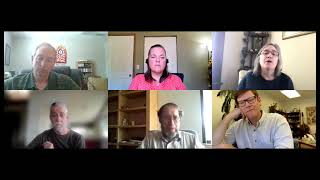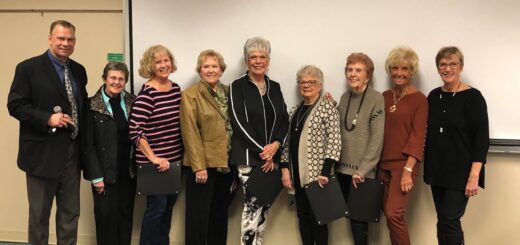I found new insights in discussing, thinking about race and inclusion in our society
For the past nine months, I’ve been part of a group meeting to explore race and inclusion in our society. It has been a challenging journey of self reflection.
Our group, which includes six local pastors and two from the community, has used the book Handbook of Racial Healing as a guide for our monthly discussions. We recorded our sessions to allow others to see us wrestle with these issues in real time. We felt transparency was best.
Now that a few members are taking jobs elsewhere or retiring, we decided to finish our deliberations with one final online meeting that included a discussion of what we learned and how we think we’ve changed over the course of our investigation.
You can watch us deliberate by searching YouTube for Living Into Inclusivity Dialogue 9.
Here’s my thinking after our nine months of discussions. Like so many challenges facing our communities today, the issue of racism’s impact has been articulated in extremes in social and mainstream media.
From an extreme conservative perspective, there is a view that racism is something from the past that has been fixed with laws that discourage discrimination and that there are no lasting impacts in our society of the centuries enslavement of African Americans, Jim Crow laws and the like or the destruction and impoverishment of Native American communities. Talking about racism, according to this view, perpetuates division and is unhelpful, so it’s best to not discuss it.
Instead, there’s a preference for thinking aspirationally about the progress that has been made over time (and there absolutely has been important progress in our society).
From an extreme liberal perspective, there’s a conviction that racism is pervasive and that it affects all aspects of our society. At the extreme, the focus on the problem of race ignores progress that has been made.
I find elements of truth in both position but believe we are better served with a balanced perspective.
I think it’s important to acknowledge the ugly truth that racism continues to exist in our society and the reality that those of us from European descent enjoy societal benefits that elude people of color in ways that are opaque to us and transparent to them.
It was sobering to ponder how my experience as a white male in this culture is far different from what Native Americans, African Americans or others experience. Listening to those experiences of people of color in our midst helps me understand how people are treated differently.
I find there is great value in trying to put myself in the position of someone else and try, imperfectly to be sure, to understand their experience. We struggle with this in our society.
Where I agree with conservatives is that looking at society fixating only on race is not helpful and can lead to greater division. That said, I cannot agree with the extreme view that there is no such thing as institutional racism. Government policies of redlining neighborhoods to keep people of color separated from whites, as just one tiny example, has clearly had long-standing effects on the health and well being of our African American neighbors. Similarly, how can someone deny the lasting impact of government policies that forced Native American children into reservation schools where they were forbidden to speak their language, had their names changed, etc. Not to mention that every treaty Native American tribes signed were violated by the United States.
Of course, those impacts continue. How could they not? For me, the way forward is to acknowledge the damage that racism has exacted while at the same time acknowledging the progress that has been and our joint commitment to living up to the aspirations of our founding documents. Fixating only on aspiration leads to vacuous idealism while focusing only on problems leads to cynicism.
The rich discussions we’ve had on this issue has led me closer to the center on this issue. I’m grateful for the shared experience with pastors Laura Shennum, James Aalgaard, Dave Haven, Sheila Marie, John Coleman Campbell, rector Frances Twiggs and fellow community member Karen Rutherford.
I have much more to learn and more ideas to test reevaluate.




